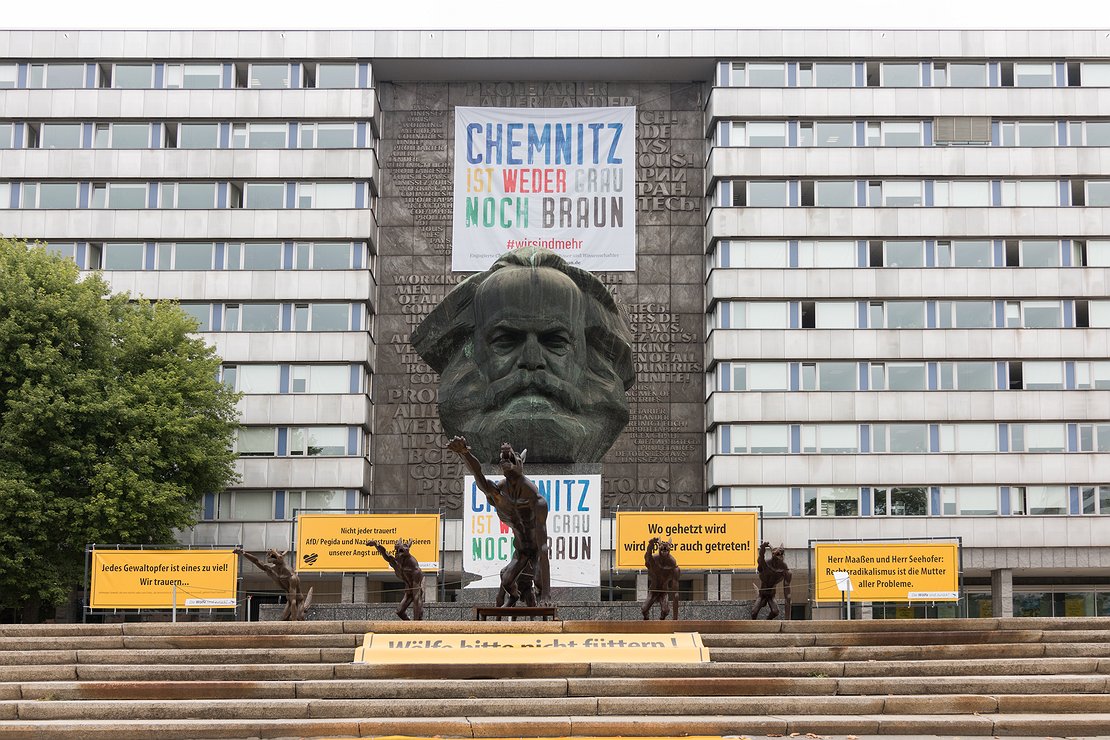
Taking stock of Donald Trump’s time in office:A Competition of Crooks
Among libertarian, classically liberal and liberal-conservative people, it’s a commonplace that politics is a competition of crooks, based, speaking in abstract terms, on a history of bad experiences with democracy. Unfortunately, this commonplace, together with all the present historical experience, is quickly forgotten when the hated social democratic, green and left-wing liberal media lay into a politician. Then it would appear that there are exceptions to the rule and that some politicians are more credible and less corrupt than others.
Donald Trump has benefited from this mechanism too, even during his election campaign. For over a year now he has been the head of the most powerful state on earth. And still he draws on the bonus of supposedly being an ‘outsider,’ of not belonging to the ‘establishment’ or to any ‘elite.’ I took a stand against Trump from the start. Every single time I (or other Libertarians) criticized Trump I (we) was (were) admonished for pointing out only one aspect, and that taken overall Trump was better than the other possible presidents. Time to take stock.
The crucial point of the ‘Libertarians for Donald Trump’, that Walter Block created, was the non-interventionism that Trump appeared to stand for: The US should concentrate on protecting its national borders, ending military operations (e. g. in Afghanistan and Syria), avoiding new military confrontations (e.g. with Iran), making peace with Russia and thus creating the basis for ending the deployment of troops to allies (e. g. in Germany), and possibly even dissolving NATO. To be able to carry out such a revolutionary peace program, one could indeed neglect almost everything else. This vision has convinced not only some libertarians, but also large sections of the population.
A study by Douglas L. Kriner (Boston University, Department of Political Science) and Francis X. Shen (University of Minnesota Law School) in June of last year shows that Trump won the most votes in areas where most of the victims of the Bush and Obama wars come from: Wisconsin, Pennsylvania and Michigan. The population, which had to witness the human cost of the war up close, chose the candidate who promised not to wage any more wars. The study suggests that this election behavior was crucial to Trump's victory. This makes it clear that non-interventionism was not a minor issue, but a crucial issue for Trump. Too good to be true. Politics is a competition of crooks.
In Afghanistan, instead of the withdrawal, troop reinforcements are planned. US military operations in Syria are increasing. Iran is being provoked. During the North Korean crisis, Trump behaved like the proverbial bull in a china shop, even though he’s now trying to eat humble pie. After Trump’s first 100 days in office, Walter Block was so annoyed by this blatant breach of the election promise that he was considering an initiative to remove Trump (for which he wanted to involve the socialist Bernie Sanders). On the other hand, he announced at the beginning of this year that ‘Libertarians for Trump’ would be revived if the presenter and (like Trump) entrepreneur Oprah Winfrey competes against Trump in 2020. It looks like he’s incapable of learning from bad experiences: that politics is actually nothing more than a competition of crooks.
Like Ronald Reagan before him, Trump, far from limiting the government's spending mania as promised, has set another sad milestone in the growth of the budget deficit. Trump’s focus, like Reagan's, is on expanding the military. Non-interventionism, however, does not need more expenditure on the military, but less. In order to push through this increase in spending, Trump is forming an alliance with liberal Democrats against the remaining classically liberal Republicans around Rand Paul. The offer to persuade Democrats to agree is - how could it be otherwise - to increase further spending, meaning spending on projects that are close to the hearts of the respective Democratic parliamentarians. You’ve got to take care of your amigos: that’s the competition of crooks.
This increase in the budget deficit also sheds a significant light on Trump's tax cuts, which are so highly appreciated by conservatives, classical liberals and libertarians. If the state lowers taxes and increases expenditure, the difference must be made up in some way; this can be an increase in taxes and charges in other areas from those where the reduction was made, or it can be an increase in inflation, an indirect and economically particularly disastrous form of tax collection. Ultimately, tax reduction combined with increased expenditure means that the burden is simply redistributed from one population group to another. The amigos must be looked after: a competition of crooks.
The trade war that Trump has now instigated is not, however, a breach of an election promise. It’s exactly what he had said he would do. At that time, before the elections, the conservatives, classical liberals and libertarians who supported him, turned a blind eye: he's not going to be so bad, ‘he doesn't really mean it.’ But it’s exactly the reverse: he has broken the promises that were in accordance with the wishes of conservatives, classical liberals and libertarians, he is incrementally keeping the promises that are in accordance with the wishes of the ruling system. And of course we know that whatever positive economic impetus comes from Trump's minimal tax reform, will be more than counterbalanced by the costs of the trade war.
The argument that Hillary would have been worse is structurally suitable for defending almost any politician or ruler. This kind of argument could also have been used to launch an initiative called ‘Libertarians for Merkel,’ because Martin Schulz would have been worse. And the German equivalent of the sighs ‘Thank Goodness for Donald Trump’ (Walter Block) and ‘It Could Have Been Hillary’ (Rand Paul) would be: ‘Thanks be to Merkel, she saved us from Martin, after all.’
Translated from eigentümlich frei, where the original article was published on 14th March 2018.




